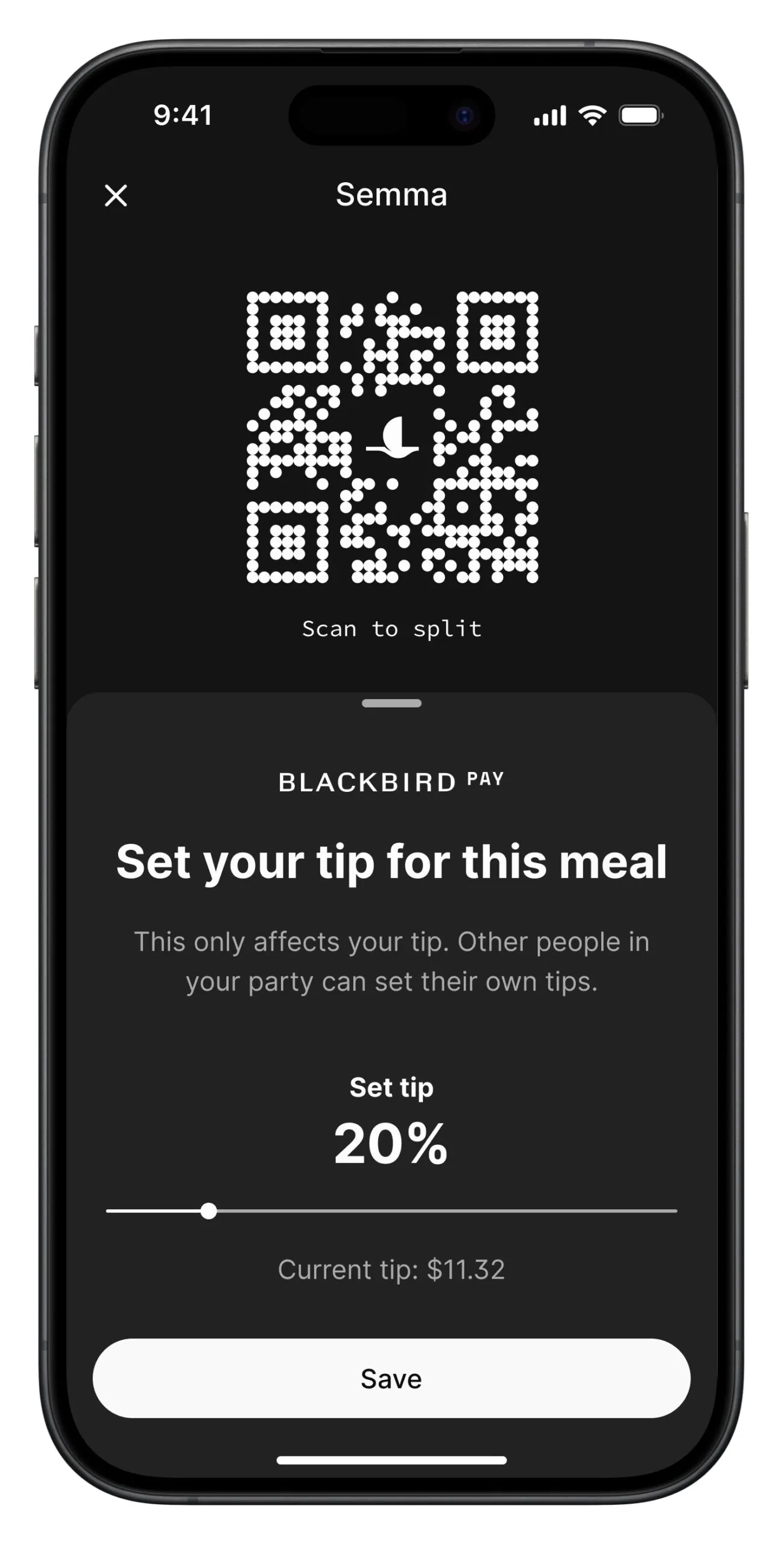Semma, a South Indian Michelin-starred restaurant in the West Village, is currently one of the hottest restaurants in New York—and thus, the world. Booking a table at Semma is such a feat that The New York Times recently dedicated an entire feature to the subject; celebrities who turn up looking for special treatment at the 65-seat spot are routinely turned away.
But Semma is now poised to cater to a certain subset of VIPs for the first time ever: crypto users.
Restaurant goers who use Blackbird, an on-chain dining rewards app built on Ethereum layer-2 network Base, can now open house accounts and pay for meals in-app with earned crypto rewards at Semma and numerous other establishments on the Blackbird network. Over 60 restaurants and bars nationwide use the app.
Central to this system is Blackbird Pay, a restaurant payment system built on the company’s new layer-3 blockchain, the Blackbird Flynet. Diners will be able to settle checks directly with some of New York’s top restaurants via on-chain payments made with FLY, Blackbird’s native cryptocurrency, in a novel system that will allow these institutions to sidestep exorbitant credit card fees.
The restaurants will instead pay roughly 2% transaction fees for Blackbird Pay transactions—significantly less than the industry status quo.

“A lot of restaurants are paying 3.5% or 4% for [payment] processing,” Blackbird founder Ben Leventhal, who previously co-founded industry favorites Resy and Eater, told Decrypt. “And in a business where overall margins are 4% to 5%, that's a huge number.”
Since its launch last year, Blackbird has helped participating restaurants attract new customers with personalized perks and crypto-backed rewards. Visitors mint NFTs when they check in at a Blackbird restaurant and collect FLY points for hitting visit streaks or checking in during incentivized windows.
Since the fall, FLY points have built towards rewards like a free martini here or an on-the-house dessert there. The app also, crucially, gives restaurants information about diners and their VIP statuses.
Now, with the launch of Blackbird Pay and the Flynet, FLY points have become more valuable. They can pay for entire meals at some of New York’s most desirable spots, as well as a handful of restaurants in Charleston and San Francisco. In addition to earning FLY points through activity at partner restaurants, Blackbird users can also top up their bags by buying more points with USDC or credit cards.
When it first debuted, Blackbird seemed to share more DNA with a rarified Manhattan members’ club than a crypto project. But the company’s new blockchain looks to have embraced certain elements of token airdrops, a degen favorite.
For one example, Blackbird partner restaurants will soon begin receiving allocations of FLY to distribute to customers as they see fit. These restaurants will be empowered to create their own rewards programs and gamified giveaways, with FLY acting as the engine powering those endeavors. The FLY whitepaper predicts that “in the future, it is anticipated that the primary rewarder of $FLY will become platform restaurants.”
Such a system, which encourages network stakeholders to become evangelists that propel forward an ecosystem’s value, mirrors crypto projects like Blast, which gifted tokens with real monetary value to top decentralized applications (dapps) on the network. The dapps then passed those rewards on to users.
Such models have shown great success in crypto over the last year. Now, they will be tested in the bars and dining rooms of some of Manhattan and Brooklyn’s most in-demand eateries.
While restaurants may be enticed to join Blackbird thanks to payment processing savings, Ben Leventhal sees his company as belonging to a very different category than other restaurant rewards apps, like InKind, which focus purely on saving users money.
“I don't think we consider savings per se to be the value proposition,” he said.
Instead, Leventhal says he created Blackbird—and is harnessing blockchain tech—to facilitate more personalized and luxurious dining experiences for restaurant goers. To Leventhal, paying your check with FLY at Semma isn’t just about cashing in rewards; it’s about being able to leave at your leisure, and not having to wait for the check in a packed dining room where everyone else is trying to flag down the waiter.
“Restaurants are there to spark joy,” Leventhal said. “They're there to make people happy. There's a more holistic idea here, which is around access and curation and low-friction connectivity.”
In the coming months, Blackbird plans to roll out additional perks for users at member restaurants. Leventhal indicated that these features will focus, first and foremost, on enhancing a VIP feel for users.
“It's going to be less about value,” he said. “And way more about access.”
Edited by Ryan Ozawa.

